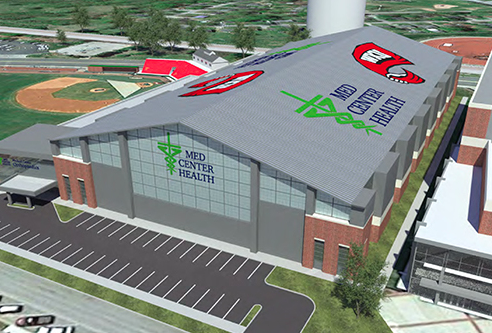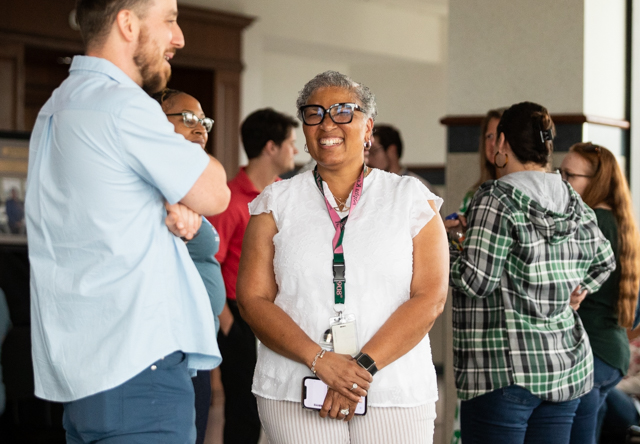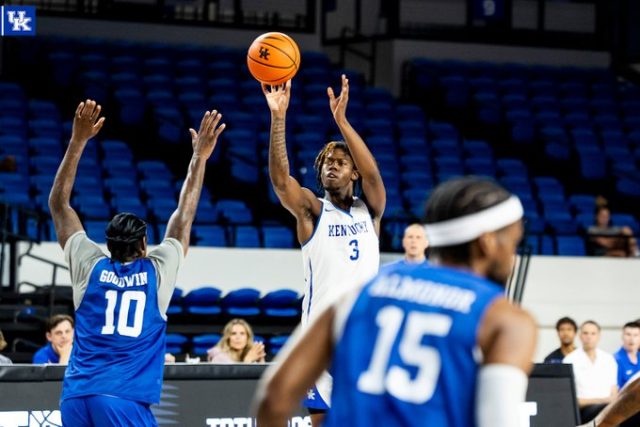Medical providers, WKU divided on sports complex deal
Published 10:14 am Thursday, October 13, 2016

- Western Kentucky University is partnering with Med Center Health to construct a new sports medicine complex on campus.
Critics continue to challenge a partnership between Western Kentucky University and The Medical Center to build a new sports medicine complex that has since been opened to competitive bidding following lawmakers’ recommendations.
Among the critics are Drs. Craig Beard and Phillip Singer with Western Kentucky Orthopaedic and Neurosurgical Associates, a health care provider that has filed two legal protests against the deal since it was approved by the university’s Board of Regents in August. Beard and Singer co-wrote an opinion piece published Tuesday in the Daily News that is critical of WKU’s approach to the deal, calling it “bad public policy, and it potentially violates federal law.”
Trending
“Our concerns deal basically with the bundling of the agreements that’s occurred,” Beard said in an interview Wednesday. “We have no problem with an indoor facility and we have no problem with Med Center Health providing the orthopedic care for their athletes. I mean that’s the administration’s call, but when you start tying all these other things in it no longer becomes a donation it becomes a business deal.
“In health care, there’s a lot of concern when deals involve arrangements when you add quid pro quo, where we’ll give you this but you’ve got to give us that, and that’s basically on the surface what this deal appears to be.”
The original deal gained the Board of Regents’ approval Aug. 19 in a 6-4 vote, with one regent abstaining because of a conflict of interest. In exchange for building the $22 million complex, WKU would have leased the land to Med Center Health for 99 years at $1 a year. WKU had planned to pay all operating expenses for space it used in the building, while Med Center Health would have paid maintenance and operation for its own space. There were also other stipulations, such as offering incentives for WKU employees to use The Medical Center for their health care.
WKU since withdrew its agreement with The Medical Center and agreed to advertise a request for proposals after an initial legal protest from WKONA and recommendations from the state legislature’s Capital Projects and Bond Oversight Committee.
Beard described the negotiation process leading up to the deal as “under the veil of secrecy” and said the recently released RFP still favors The Medical Center because of months of private talks.
“We were given four weeks to come up with this deal that took The Medical Center and Western (Kentucky University) many months to iron out,” he said. “And all of these things that they’ve put in the RFP are very vague and slanted towards the deal that’s already been arranged. That’s the big objection that we have.”
Trending
Beard raised further concerns that the deal could create a monopoly for The Medical Center, raising costs for patients without increases in innovation. He cited language in the RFP stipulating that “the university is willing to consider a long-term exclusive contract with the medical services provider that could include various health related services in exchange for shared use of the facility constructed by the bidder.”
“The thing about it is there’s no incentive for that health care provider to keep the costs low, there’s none. They’ve got the contract locked in,” he said. “So it doesn’t matter to them really if a CT scan is $500 or $300 or $700. They’re (going to) choose the highest cost they can get by with.”
Beard and Singer’s letter charged that WKU began restricting choices the day the deal was approved by the Board of Regents.
“Indeed, the very day after the original Letter of Intent was formalized, WKU already tried to commence the process for restricting choices,” the letter said. “On Aug. 19, (Gary) Ransdell informed physician groups – that had faithfully supported the community and university for 80 years – that their services would be terminated under the new deal; and later, they were intentionally excluded from the network of physicians who would be available for WKU care.”
Tony Glisson, WKU’s director of Human Resources, denied that claim in his own op-ed that is available on bgdailynews.com and will be published Friday in the Daily News’ print edition.
“As an act of professionalism and courtesy, (President Gary) Ransdell did indeed inform the WKONA physician group of the pending partnership with The Medical Center and that in the future (date to be determined) Medical Center Orthopedics would be providing orthopedic care services under the pending agreement to WKU’s student-athletes,” Glisson wrote. “It is important to note that the context of this conversation was associated with medical services to student athletes only. WKONA has a long history of providing such medical services to WKU athletes. Medical services to student athletes are in no way related to the Employee Health Plan.”
Glisson also refuted claims that WKONA had been terminated from WKU’s Health Plan as inaccurate because changes to its third-party health care network are not controlled by WKU. Glisson also wrote that Graves-Gilbert Clinic (WKONA’s partner) will also continue to be a network provider and that claims to the contrary are false.
“GGC has been and continues to be a network provider under the Health Plan,” Glisson wrote, reiterating that Anthem Blue Cross and Blue Shield controls that.
New agreements won’t limit choice in health care, Glisson wrote.
“Any new agreement that may result from the RFP will not impose restrictions on which medical service providers will be available in the future to WKU employees and eligible dependents,” he wrote.
When asked to respond, Beard said the university terminated its partnership with Graves-Gilbert Clinic to run an on-campus health clinic. He remained concerned about how exclusive the contract would be.
“Are the WKU employees going to be allowed to go with Enspire only?” he asked, referring to Med Center’s Health’s partners. “That’s what exclusive means to me.”
Doris Thomas, vice president of marketing and development with Med Center Health, also issued a statement in response to WKONA’s op-ed.
“We are aware that WKONA has filed a second protest to WKU’s RFP process. We have also read Drs. Beard and Singer’s letter published in the editorial section of Tuesday’s paper. While we have no comment on the protest or how the Finance Cabinet might respond, there are several items contained in their letter that are false,” the statement reads.
“There have been no discussions about limiting the WKU faculty and students’ choice of healthcare providers. In fact, the original letter of intent specifically stated: ‘The described employee incentives shall not limit nor interfere with an employee’s right to choose other providers and facilities as desired with the Health Plan’s designated provider network and plan structure.’
“WKONA operated for many years as the only orthopedic practice in the area – as a monopoly. The group also provided orthopedic services to WKU Athletics for many years – through a process that was negotiated and did not go through any formal procurement procedure.
“WKONA’s inference that they are providing higher quality care than other physicians in the community is an unproven, unsubstantiated and arrogant assertion.
“While WKONA continues to say they have no intention of blocking or delaying construction of a sports complex, they are in fact doing just that.
“The Letter of Intent that we originally entered into with WKU was in full compliance with all state and federal laws. Any bid we may submit will also be in full compliance with all state and federal laws.
“It appears the biggest concern to WKONA is that they now have competition in orthopedics. WKONA was the first to be approached by WKU about this project, and they said no. Perhaps the real problem is they are disgruntled the project might happen without them.”
In an affidavit signed by Beard and dated Oct. 6, Beard said WKU President Gary Ransdell and Athletic Director Todd Stewart approached WKONA in the winter to discuss a partnership to build an athletic complex.
Beard said he was told the project would require a $20 million investment and that the project “would be perfect for WKONA and another partner.” He was also shown multiple drawings of the proposed building in its currently proposed location between Houchens-Smith Stadium and Nick Denes Field.
Ultimately though, Beard said he turned it down because of legal concerns, according the affidavit.
“The meeting lasted thirty minutes and concluded after I expressed my opinion that the proposal would not prove to be a workable business model given potential statutory and regulatory roadblocks that would prove difficult, if not impossible, to overcome,” Beard said in the affidavit.
“Ransdell and Stewart never mentioned to me that they were interested in receiving other proposals or that they intended to pursue a partnership with other interested medical service providers to construct a Facility similar to the one presented during our meeting,” he said.
— Follow education reporter Aaron Mudd on Twitter @BGDN_edbeat or visit bgdailynews.com.







